Is it rude to ask builder to disclose costs/profit?
We are currently having site work done on our property and will have the foundation put in mid next month.
Our builder gave us a contract that had standard legal mumbo-jumbo, then build relevant things (type of materials used, etc), then the allowances. The only thing that actually discloses monetary amounts are obviously the allowances.
I wanted to ask him what his mark up is, if its a percentage of the cost to build, or something else, but my husband says that its not appropriate to do so.
I want to now even more so because of a statement he made when we were onsite last week. He said, "The lot's turning out to be a real workable lot. When I first saw it I thought it was a disaster that would need $50,000 in site work, but its not looking like that at all, its actually a nice lot." Now, my question/concern is say the excavation work comes out to $35,000, throwing in 20% comes out to $42,000, what happens to the remaining $8,000? Does it automatically go into his pocket because I never asked about those figures? He has openly and repeatedly said, anything left over on the allowances he will write me a check for.
More over, the area for the back yard has a 20' difference in grade from back to front, and I would rather the possibility of money left over to go to leveling out the backyard, not necessarily back in my pocket.
So, is it okay for me to ask how much he is making on our house, and specifically on each section? Can I make an addendum to the contract that asks for full disclosure? Or maybe invoices?
I find it hard to believe that in the over 300 homes he has built, not one person asked him about his profit margin.
Thanks for any input!
This post was edited by CallMeJane on Thu, Mar 21, 13 at 18:12
Comments (40)
rrah
11 years agoYou can ask him to sign an addendum to the contract asking for full disclosure, but it's meaningless unless he agrees to sign it. The time for these questions was before you signed the contract.
LuAnn_in_PA
11 years ago"I find it hard to believe that in the over 300 homes he has built, not one person asked him about his profit margin. "
???
How do you know that's the case?Related Professionals
Four Corners Architects & Building Designers · Oakley Architects & Building Designers · Ronkonkoma Architects & Building Designers · North Bellport Home Builders · Terryville Home Builders · The Colony Home Builders · Wasco Home Builders · De Pere General Contractors · Hayward General Contractors · Midlothian General Contractors · Monroe General Contractors · North Lauderdale General Contractors · Signal Hill General Contractors · Vincennes General Contractors · Westmont General ContractorsCallMeJane
Original Author11 years agoI know. I guess Im more miffed as we just got our appraisal back which is close to the amount for ONLY the cost to build. If you include what we paid for the land, we lose out on a $115K. (Mind you, we paid almost $100K less than the going rate for acreage up here).
I'll still blame DH for not letting me ask the right questions, and will try to redeem what I can henceforth.Thanks for your response.
CallMeJane
Original Author11 years agoLuAnn-I dont know that, I just find it hard to believe.
There are plenty of personalities building homes, some easy going, some will drop money at anything, some are control freaks, and some are penny pinchers just to name a few. Statistically, he must have, at some point run into someone who would like to know exactly where all their money is going.dbrad_gw
11 years agobrickeye, his annual salary isn't what she's asking for - she's wondering what his "salary" is on HER project alone. Sounds reasonable to me.
And yes, I couldn't imagine spending the kind of money we're about to spend on this build and not know where it all is going, line item by line item. But then again that's why we're planning to do a cost-plus arrangement and select our builder carefully.
virgilcarter
11 years agoWhat kind of construction contract did you sign? Is it a fixed sum, not-to-exceed amount? If so, you have no reason to question his costs, mark-up and profit margin. Your only concern is that he does not exceed the fixed sum.
In other words, it all depends on the type of contract you signed. Do you know what it is? It sounds like you don't know what you did.
Good luck on your project.
sweet.reverie
11 years agoOurs was broken out on the budget. I would have though it odd not to have it on there... I would ask if I were you. Just in a friendly, non-threating way.
daviddj
11 years agoI asked our perspective builder. I could tell he was a little uncomfortable but he said it was 20%. He also stated that he negotiates on bottom line cost and not % profit.
Is 20% typical and is negotiating on bottom line cost the way this normally works?
virgilcarter
11 years agoBuilders tend to have seperate figures for overhead/administration and profit. Getting one figure without the other is of little value.
If as an owner one enters into a fixed sum, not-to-exceed contract with a builder, the only issue is that maximum fixed sum, which should only be exceeded with owner-apoproved change orders. Under these circumstances, there is no reason for a builder to disclose their overhead and/or profit. And there's no reason for a contractor to furnish the owner with monthly expense statements, unless called for in the agreement.
On the other hand, if the construction contract is cost plus a fixed fee, then the contract should clearly specifiy what the contractor's fee will be for various work. And the contractor should submit monthly expense statements to the owner as evidence for payment.
Everything depends on the type of construction contract. I'm amazed at how litle apparent understanding there is about the terms and conditions for various type construction contracts.
Some prior due diligence might help.
renovator8
11 years agoJane, you're concerns are legitimate but you are asking the wrong questions. If the compensation to the contractor is based on a fixed sum to be paid in installments as the work progresses then the OH&P contained in it is irrelevant. However, there are two kinds of OH&P: the one he used to estimate the contract price (based on past projects) and the one he will determine when the project is over (and use to determine future OH&P). They are never the same.
But there is a place where his OH&P will be set arbitrarily and revealed to you and that is for Allowances or an increase in the scope of the work. Allowance amounts are only placeholders in the contract and they will be determined as the Allowance work is fully defined and paid for. When you get the bill for that work it will be broken down into his actual cost plus his mark-up (OH&P). This number is negotiated at the time the contract is written and should appear on any accounting of the cost of the Allowance along with the receipts for that work, so it should not be a surprise to you.
He would not write you a check if the Allowance buy out was less than the original Allowance amount, that amount would be subtracted from the Lump Sum contract price by a Change Order. All payments are from you to him until he reaches the Lump sum amount.
If the site work was covered in the contract by an Allowance you would see the actual cost of that work plus his markup and the savings would be documented in a Change Order that reduced the Lump Sum Contract Price.
phoggie
11 years agoMy contractor was hourly + 10% on supplies he purchased..nothing on what I purchased i.e. flooring, lighting, faucets, cabinets, granite, hardware, closet organizers, etc.
GreenDesigns
11 years agoIf you are purchasing fixed cost, it absolutely doesn't matter if he's under his projected price on some components. You aren't entitled to those "savings" at all. Your price is the bottom line, period. He may underestimate on the electrical work, so would you be OK with paying 5K more for that for the same work, no upgrades? If the answer to that is yes, you'd be happy to pay 5K more, then a cost plus contract would have been the one that you should have chosen for your project. You will pay only the exact cost of the work, plus whatever profit percentage for the builder's services. That is the type of contract where you get to know the exact numbers, The catch is, you don't really know the bottom line until it's done with.
CallMeJane
Original Author11 years agoI had initially read up on different contract options, but assumed (and yes, I know what assuming means) that since all 5 bids that we got came back with the same breakdowns/itemizations/disclosures, that it was a standard way of doing things in this area.
I very much appreciate all the information given. The more I think about things, the more I am okay with the arrangement I have. I guess it was more the appraisal not being what I expected that made me question things.
Thanks again!virgilcarter
11 years agoNo two contractors necessarily have the same rates for overhead and profit. Each is an individual business with their own expenses and profit goals. That's really academic since you already have a construction contract.
As to the appraisal, have you contested the appraisal? It's possible to question it and/or have another done by a different appraiser. Who selected the appraiser, you or the lending agency. If you feel you have a legitimate basis for contesting the appraisal, you should do so. After all, it's worth $115K isn't it?
live_wire_oak
11 years agoYou aren't allowed to cherry pick your appraiser any more. You have to dance with the one the bank sent ya. The only way to "appeal" an appraisal is to contest the comps that were used for it. Or to contend that incorrect square footage was used, etc.
worthy
11 years agoIt sounds like the OP didn't have her lawyer look at the contract first to address her concerns and explain exactly what the contract and the legal "mumbo jumbo" mean.
I'm a simple guy. Either it's: a 1) fixed price with limits (allowances) spelled out or not even allowed; 2) a project management contract; or 3) cost plus.
Frankly, in none of these arrangements will the client ever really know what a builder's profits/losses are. Fixed price, it's none of your business. In cost/plus, the buyer will not get the trade price. Let alone, be aware of all the kickbacks that unscrupulous builders will take advantage of. In project management, you'll never know the builder's overhead. When I've done these, I don't even know what the home costs as the clients have always made separate arrangements for such basics as windows, alarm systems, cabinetry, landscaping, backup generators, in-floor heating etc. etc. Not all in the same build though!
brickeyee
11 years ago" his annual salary isn't what she's asking for - she's wondering what his "salary" is on HER project alone. Sounds reasonable to me."
Should he set his price based on HER annual salary?
It is NOT reasonable to go meddling that far in most businesses you deal with.
Do you ask the tailor what his profit is on your suite?
How about the shoe store?
How would you then verify the number
Or decide what is 'fair'?If you had a 'cost plus fee contract', it would be shown.
Other types, not likely.
This post was edited by brickeyee on Thu, Feb 28, 13 at 11:56
virgilcarter
11 years agoW, what's a project management contract? Is that a term for design-build? As the former executive director for the Project Management Institute, I don't think I've ever heard that term used in relation to designing and building a house. Usually it's used in regard to how a project (any project) is organized, managed during implementation and closed out.
Thanks.
zone4newby
11 years agoYou could see if your banker is willing to share the dispersal schedule. I'm not sure if this is universal, but I know that the bank/title company handling our construction loan asks for pretty specific information about what the money is for, and needed predictions about what the builder expected to spend at the beginning.
But honestly, I can't see trying to get the builder to reduce the cost of the house at this point-- his price was based on him taking on the risk of the excavation going badly, etc... and he may balance his risk over multiple builds. If you were unhappy with the price, you should have negotiated with him about it before you signed the contract. Sticking him with the risk and then expecting him to share the benefits seems unfair and unreasonable, IMO.
dbrad_gw
11 years ago"Should he set his price based on HER annual salary?
It is NOT reasonable to go meddling that far in most businesses you deal with.
Do you ask the tailor what his profit is on your suite?
How about the shoe store? "
As we've already discussed, it is common in homebuilding for a builder's profit to be known by all parties. I believe that's why she was asking - she probably saw many of us talking about that very thing. Sure, she had a fixed contract so it's hidden, but that doesn't negate the appropriateness of the question.
And I can't follow the line of reasoning between this, and other industries like clothing and shoes. Profit is of course not separated out there - it is not enough money that anyone would care.
lazy_gardens
11 years agoYour builder said, "The lot's turning out to be a real workable lot. When I first saw it I thought it was a disaster that would need $50,000 in site work, but its not looking like that at all, its actually a nice lot."
It sounds like you think he's pocketing a windfall because the lot turned out to be easier to build on than he estimated. And that you should get some of his unexpected savings.
And if it was worse than he estimated - let's say it cost him $75,000 in site work, would you be OK with him coming back to you and asking for an extra $25,000 because his cost was more than estimated?
worthy
11 years agoW, what's a project management contract?
Here's what happens.
Client has a plan, usually from one of the architectural technologists or licenced designers I recommend, then I build it using the client's funds and am paid a salary strictly for my on-site supervision.
I may be wrong, but I don't think this is a particularly common way of doing things, as most builders would prefer not to so limit their potential income from extras and /or cost savings.
sanveann
11 years agoI don't think it's rude -- our builder disclosed his to us without us asking. (It was also 20 percent.)
virgilcarter
11 years agoThanks, W. I haven't encountered that sort of construction contract here in the U.S. (at least while I was in practice). Is this now common throughout Canada and elsewhere?
What's the difference in this and a cost plus fee contract? Seems to me in either arrangement you have to present the owner with monthly invoices for the direct, indirect and labor expenses incurred that month, plus your fee.
worthy
11 years agoWhat's the difference in this and a cost plus fee contract?
As you describe it, nothing really.
Is this now common throughout Canada and elsewhere?
I have no idea. I'm not a joiner of any association and only have regular contact with my trades, suppliers and professionals. I came across project management in '89 when I found another builder doing it that way and it seemed to fit some situations. I know a few other builders that do it, and also one of the architectural technologists I use who likes that method.
Unlike cost plus, the only accounting I do is to be sure that the trades/suppliers live up to their side of the contract; and to provide receipts for the dozens of little things that have to be picked up during a build.
On the plus side, versus fixed price, I don't have to worry about underestimating my costs, especially on what I may find when we excavate. As well, the home is not necessarily eligible for the mandatory provincial warranty programme (TARION), which would require me to warrant it for up to seven years on some aspects. (Not that I've ever had a claim that cost me more than a couple of hundred dollars.) And, to confuse it more, sometimes I've had to enroll and register the house and put down a $5,000 deposit only to be told the house is still not covered.
The downside from the builder's point of view is that you're getting a fixed amount for a build and there's no honest way to increase that, as there is when clients upgrade from what they originally said they wanted. As well, some people seem resentful of what they consider "too much"--even though if it were cost-plus or fixed price, plus the inevitable upgrades, it would cost them more. On a build from say 3,200 sf.-5,000 sf, I would expect $60K-$80K. (You should have seen the comments here on my "greed"!)
This post was edited by worthy on Thu, Feb 28, 13 at 19:44
dreambuilder
11 years agoI don't think it is rude--in fact, I asked our builder for a copy of the true cost to build our home for insurance purposes b/c I was mad that the insurance company was trying to extremely over-inflate our re-build cost. Even taking into consideration hauling away the old house if it burned, etc...the re-build cost was astronomical....by providing my builders sheet of how much it actually cost to build I was able to get a much lower rate on my homeowners policy.
CallMeJane
Original Author11 years agoYes, all very insightful.
And yes, we are contesting with the bank's appraiser.
I dont think I need a lawyer to go over start date/completion date, if they hit rock-I pay to blast it out, I pay utilities, etc (legal mumbo jumbo) esp since its written plain as day, and if I need I can call my sister, who is a lawyer.
To the statements saying that I have no business knowing what someone's profits are...true, in an overall sense. But I have every right to know where my money is going, until it is no longer my money. If I am not comfortable with anything, I can and will bail, (which is clearly spelled out in my contract as well). The builder is easy to talk to, which is one of the reasons I went with him. And I am spending a pretty penny to have the peace of mind that I am not being taken advantage of bc of my profession (which I did say to him before finalizing the price of the house). I am glad to hear that others have asked or have been told the true cost (or indirect profit) of their build.
Nonetheless, as I initially mentioned, the initial post was in response to our appraisal. After all, if you shoot yourself in the foot, you arent just going to say "aw shucks"....you'd maybe at least call 911 to see if there is someone/something to help?? Consider this my 911 call. Thanks again for all the responses, info, and opinions.James L. Backman Contracting
11 years agoIf you signed a lump sum guaranteed maximum contract, it really is none of your business what his profit is. Even if he does supply that information and you think that his profit is out of line, what do you think that you can do abou it? If you have signed a lump sum contract, he certainly has no legal obligation to give some of it back to you. What about his office overhead such as power, phone, transportation, insurance, contractor's license and office supplies? How much do you think he should collect from you for that?
Actually, he will not even know what his profit is until the project is completed and all invoices have been received. When you go into a restaurant to eat, do you ask the waitress what it is costing them to purchase and cook the food that you eat?worthy
11 years agoI asked our builder for a copy of the true cost to build our home
I get this question all the time and I have two answers--one, my cost (which I keep to myself) and the one I say, which includes an income for me to pay for my time, overhead and profit.
****As for the OP, I'm still baffled.
The only thing that actually discloses monetary amounts are obviously the allowances.
So the house is not being built under cost-plus--otherwise she would know the "mark up" at every stage.
Can't be fixed-price, because that's not disclosed.
So open-ended with no limits, I guess.
This post was edited by worthy on Fri, Mar 1, 13 at 13:40
laurajane02
11 years agoFwiw, we asked for the breakdown of all the prices when we requested bids from the contractors we were considering. We used the book linked below as guidance because we really didn't know what we were doing and I hadn't found GW yet.
For the contractor fee, prices were 8%, 15%, 20% and a fixed price of $90,000. Interestingly, the 8% contractor was also the highest bidder.
Our build is custom, so we're paying a fixed price for some things (ex. framing, foundation) and have allowances as guidance for others. If something costs more than our allowance, our contractor doesn't charge more than his percentage of the estimated amount. Whatever we provide, we don't pay him a fee for (these items were mostly decided before we started building).
Our monthly bill is just a number though, we don't get a breakdown. If I want to know how much a particular bid is (ex. Stone for the fireplace or the HVAC ), he'll show me the whole thing. I just mentally add 15% and HST to that number ;)
Here is a link that might be useful: Amazon.com book
worthy
11 years agothe 8% contractor was also the highest bidder.
Says it all to those who think the less money the builder says he's making, the better the deal.
brickeyee
11 years ago"it is common in homebuilding for a builder's profit to be known by all parties."
Depends on they type of contract.
If you are buying from a developer (especially a very large one) they often are reluctant to disclose ALL the details.
What any builder spent to build should not mater to an insurance company.
The have their own estimating guides, and there is no guarantee it could be rebuilt for the same price.
Economies of scale if their builder has other work in the immediate area alone affect costs.
It is a lot cheaper to move an excavator a short distance under its own power than having to load it on a trailer.virgilcarter
11 years agoThe first thing that came to mind as I read the responses from folks who said they were told their builder's O/A and profit was that they only got what the builder typically gives out for public consumption.
The second thought I had was how on earth does a consumer compare the quality of work, schedule maintenance and ease of communication between contractors who quote a "fee" (whatever that means) of 8%-15%-20% or whatever? Is the "fee" the overhead/administration, the profit, both or none of the above?
Sorry to say but none of these numbers really mean very much in the grander scheme of things for consumers.
What (should) matter to an owner is the quality of the work, how long it takes for occupancy, if the builder can carry on a resonable conversation using simple declarative sentences, and the bottom-line expense to be able to move in and occupy the completed house.
And appraisals (for financing and insurance) are often in another world entirely unrelated to construction costs which is called "comparable sales" by appraisers/real estate agends and the most boggling phrase of all "replacement cost" by insurance reps.
It's natural enough to wonder and even ask about builder's O/A and profit. Just don't think you're going to get a useful number. Just my experience.
robin0919
11 years agoditto what Worthy said. What business (any business) in the world is going to tell a customer what their cost is and how much profit they are going to make.......seriously folks....If you want to know how much it's going to cost...be your own GC!
laurajane02
11 years agoI agree that the fee charged by a contractor wasn't really useful in helping us choose. It seemed like a very arbitrary number. However, the breakdown of costs and expected costs really helped.
The 8% and 20% contractors had priced everything locally. Since we live in a very small town, these prices are much higher than what you can get in a larger center, so the bids were higher. But, it was still nice to see what they expected framing to cost, roofing to cost etc.
The 15% GC, who we ultimately chose, had a much lower price on certain items (roofing alone was $30K less). It wasn't a quality issue, he quoted products through the US, as opposed to locally in Canada. So, generally speaking, we could see by comparing the bids that this contractor had put more effort into finding less expensive products (of comparable quality).
Regardless of how a GC is chosen or paid, I do know that I'd be paying more for my house without a GC than I am with one. And my house wouldn't be as nice. And there would be many mistakes that we'd just be living with.
renovator8
11 years agoI still don't understand what kind of contract Jane has. All contracts are defined by how the GC is compensated so that is the first thing to explain when you ask a question about a contract.
Allowances are only used in Lump Sum contracts so the total cost of the project should have been written in the contract and the Allowance section should reveal the contractor's markup for additional work.
If the contact is Cost of the Work Plus a Fee then all compensation is based on a negotiated Fee that can be a % of the Cost or computed some other way.
Solving a problem starts with a careful definition of the problem but I'm not even sure what she is talking about.
laurajane02
11 years agoDeleted post assuming that renovator8 is referring to the OP and not me ;)
This post was edited by laurajane02 on Sat, Mar 2, 13 at 17:44
renovator8
11 years agoContractors usually do not break a lump sum price down unless specifically asked to do so in the Instructions to Bidders and each category needs to be described well in order for that information to be useful to the Owner.
The reason GC's want to avoid breakdowns is that it invites the Owner to "shop the job" by comparing sub-contractor prices as well as GC OH&P leading to a lot of confusion and inequitable comparisons which appears to be what has happened in the OP's case.

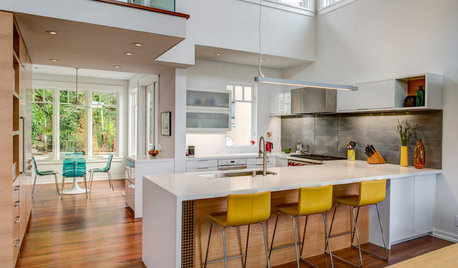


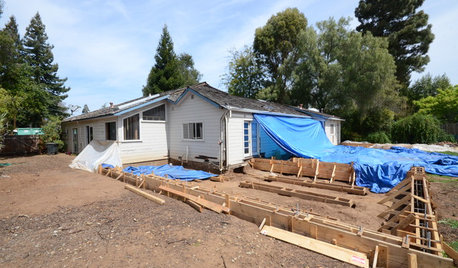

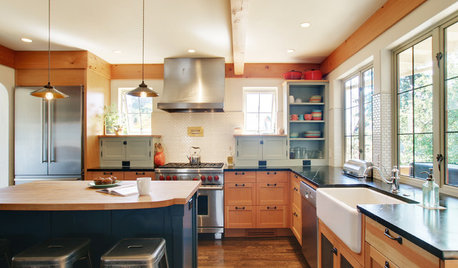
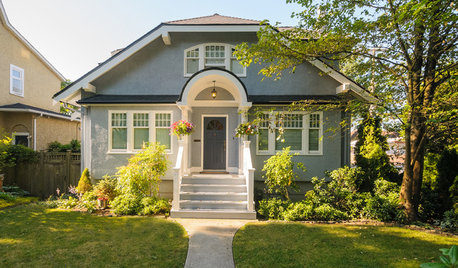








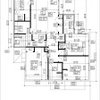


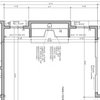
brickeyee